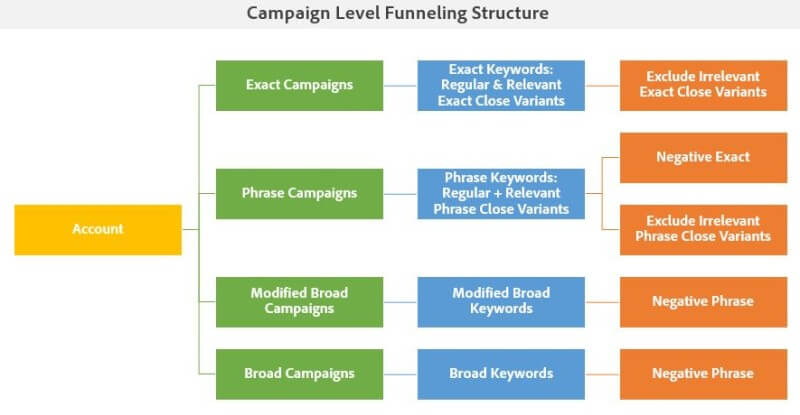Tackling AdWords’ New Default Close Variants Matching Behavior
Contributor Benjamin Vigneron explores the new default behavior and finds an efficient negative keyword strategy is more important than ever.
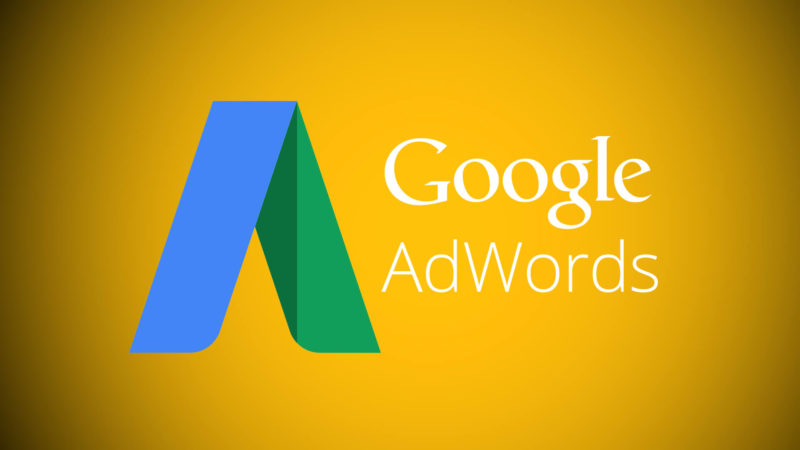
There is no shortage of literature about ‘pure’ exact match type going away some time soon. Savvy search marketers love control, and this AdWords update clearly feels like a downgrade.
Back in May 2012, I was actually finding it beneficial be able to opt in to or out from Google AdWords’ close variants, depending on your preference: opt in to easily increase coverage at a fairly stable cost-per-click while keeping an eye on search queries, or opt out if you are seeing poor performance from close variants.
Whether you decided to opt in or out over the past two and a half years, you might be upset by no longer having the option to opt out, especially for those ambiguous keywords with irrelevant close variants you want to filter out.
Below are some thoughts about the potential effects, as well as suggestions for combating AdWords’ new default matching behavior.
The Conversion Chain At Stake
As shown below, the relationship between search query and keyword is the first step in the conversion chain.
In fact, not only is it the first step, it is also one of the levels where search marketers have historically had the most options available, from exact to phrase to broad match types, then with modified broad in 2010, allowing for a more sophisticated match type mix based on performance and scalability.
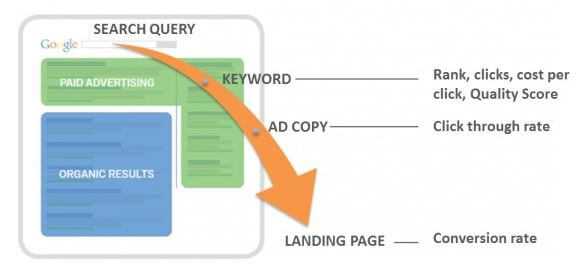
The relationship between search query and keyword is the first step in the conversion chain.
Furthermore, the search query to keyword relationship cannot be analyzed without considering what comes next: the associated ad copy and landing page.
If you lose control over the search queries associated with your exact keywords, you’re potentially also losing control over the ads that are served and the corresponding landing pages as a result.
Close Variants Matter More On Mobile Devices
I collected some data across multiple advertisers (mostly retailers), and I saw some interesting trends.
For those campaigns using exact and phrase close variants, those variants accounted for roughly 8.5% of the impression volume, with a remarkably higher proportion on mobile devices at 9.1%, most likely due to frequent typos.
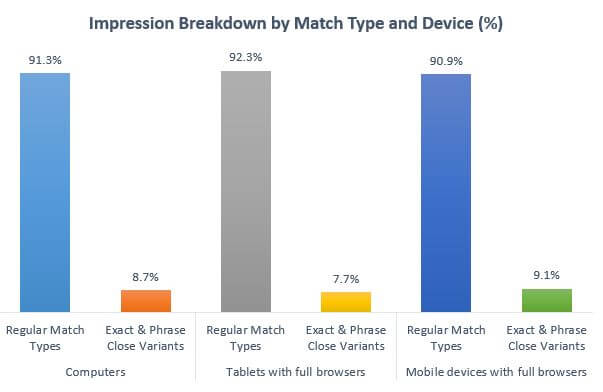
Impressions by Match Type and Device
So mobile impressions are likely to be impacted the most. Could this be another intentional attempt to push the industry into increasing mobile investment? Well, it sure looks like it.
Ambiguous And Branded Keywords To Be Most Impacted
Besides impressions, which indicate how Google matches queries to keywords, I also wanted to look into the average CPC. I found that:
- Close variants may have similar or even lower CPCs. This could reflect lower competition on those close variants as not all advertisers are using close variants currently. That shouldn’t last long, though!
- Close variants can have tremendously greater CPCs for branded keywords, which indicate that branded keywords’ close variants are… no longer branded!
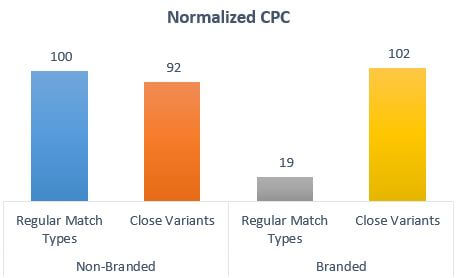
Normalized CPC for branded and non-branded keywords
Further Funneling Allows To Mitigate Close Variants’ Negative Effects
First of all — and you might have noticed this yourself — remember that negative keywords do not behave like positive keywords!
Exact positives and exact negatives are not associated with the same queries; same thing for phrase and broad. Essentially, positive matching will cover more queries than its negative counterpart, which means there is a gap — and this gap is getting bigger with close variants being the new default.
Search marketers can potentially leverage this gap by expanding their negative keyword lists in order to exclude irrelevant or poor-performing close variants even for exact-only campaigns or ad groups.
In general, the following campaign structure can be suggested to best tackle the new default matching behavior (note that a similar process can be applied at the ad group level):
Also, for ambiguous keywords where the singular and plural forms are significantly different (from a user intent and performance standpoint), you might want to have an ad group for the singular form where the plural form is excluded, and another ad group for the plural form where the singular form is excluded.
Setting that up is a tedious process, so you’ll definitely want to prioritize and only to do this for your top exact ambiguous or branded keywords.
Conclusion
Unless you had already opted in for close variants over the past two and a half years, you should expect some incremental impressions at higher CPCs in the near future, with a potential emphasis on mobile devices and branded or ambiguous keywords.
In all reality though, it is hard to quantify the potential effects as it all depends on your current match type mix, bids, and negative keywords. What’s for sure is that you should definitely continue to add more negative keywords across your campaigns and/or ad groups, even across exact ad groups and campaigns.
In a nutshell, an efficient negative keyword strategy is getting more crucial now than ever. Also, with close variants now matching for all phrase keywords, is modified broad still worth the effort?
Contributing authors are invited to create content for Search Engine Land and are chosen for their expertise and contribution to the search community. Our contributors work under the oversight of the editorial staff and contributions are checked for quality and relevance to our readers. The opinions they express are their own.
Related stories
New on Search Engine Land
